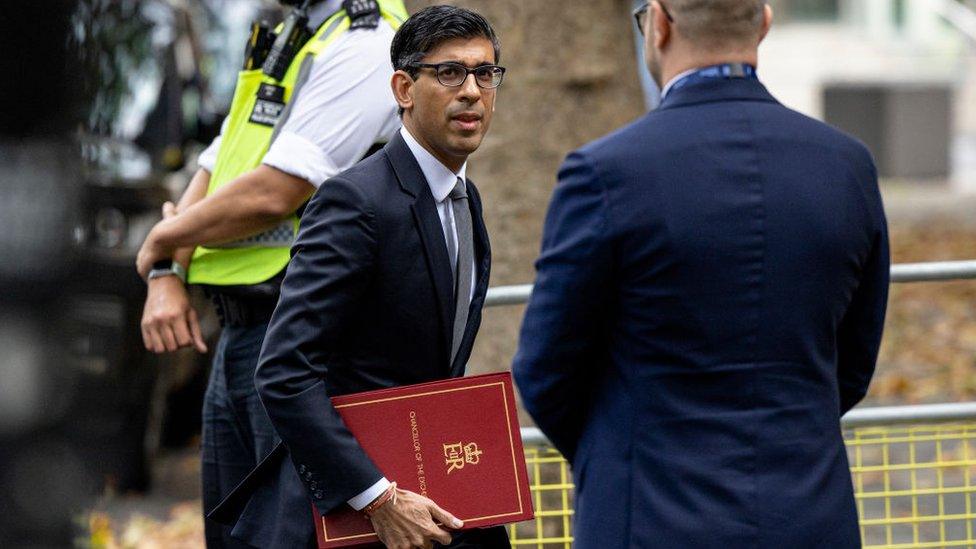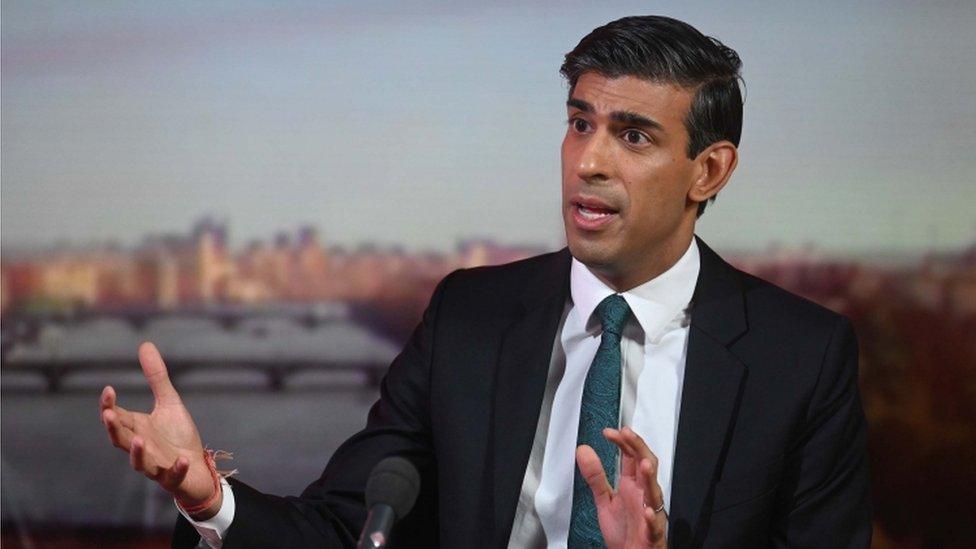Budget 2021: Don’t hit us with more taxes, firms beg chancellor
- Published

If government and business were a couple, a guidance counsellor might have been called in by now to repair a strained relationship.
This week's budget will be a test to see if the mood music can improve, after a number of fractious years.
Relations seemed to hit an all-time low when the prime minister famously dismissed business concerns over the brinksmanship, during the Brexit negotiations, with a four letter expression of his lack of sympathy.
Then the argument became more physical. A whopping rise in corporation tax from 2023, from 19 to 25%, reversed at a stroke a decade of Tory business tax policy.
The chancellor then raised employers' national insurance contributions by 1.25%, adding £6bn a year to a wage bill that was already rising.
Those rising wages were celebrated by the PM at the Conservative Party Conference - Boris Johnson insisted it was evidence that the UK was on its way to higher wage more productive economy.
But economists will tell you the productivity gains are supposed to come first.
And all this against a backdrop of business feeling they were being blamed for labour, driver and petrol shortages, that have hampered the recovery of many parts of the economy.
Meanwhile the government is urging, even expecting, the private sector to lead the UK into greener, more sustainable pastures by investing heavily.
As Tony Danker, head of the CBI recently put it: "You cannot will the ends and ignore the means to turbocharge the economy.
"The government wants business to drive investment and innovation but its tax policy is working in the other direction."
The government will point to the fact that the businesses that do invest have already been rewarded by the so-called "super-deduction" introduced in the March budget.
This measure rewards companies that do invest with tax breaks greater than the sum invested - a move that was widely welcomed by business.
There is also the small matter that the government spent over £70bn paying 11 million peoples wages at one time or another over the last 18 months. Business tax rises are part of an inevitable payback.
Overhaul of business rates unlikely
It is unlikely that we will see any major changes in direct business taxes - and for that businesses will be grateful.
However, they are likely to be disappointed if they are expecting a long-awaited major overhaul of business rates - their biggest and longest held desire.
The government may, however, say that green upgrades to premises will not lead to higher rates, as often happens now. When firms improve their buildings, they get sent a higher rates bill under the current system.

Technicians fitting solar panels to a house roof in Ambleside, Cumbria
Business also fears that there may be some backsliding from the government on targets for public spending on research and development.
A much anticipated rise in capital gains tax, to be more in line with income tax, will have implications for investors in business.
Yet, other business leaders admit the government has a point on highlighting under-investment.
Speaking recently at a home builders conference, the boss of Taylor Wimpey, Pete Redfearn, said that the construction industry had been guilty of not putting more of its own money into skills and training.
An extra £3bn announced this weekend for skills and extra funding for electric car production in the North East and the midlands was welcomed by business groups. We can expect a heavy emphasis on skills in the chancellor's speech.
Business feels that at times it is the victim of gaslighting - where its real and difficult experiences are dismissed as irrational or self pitying, by a government keen to look forward to a time when, hand in hand with industry, it can lead the UK to a greener more prosperous future.
As always, there will be talk on both sides of the happy partnership between public and private, but behind the smiles, the strains between business and the government remain very real.
Related topics
- Published24 October 2021

- Published24 October 2021
